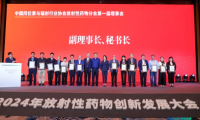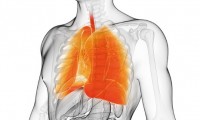-
Boehringer Ingelheim and Ochre Bio partner on liver disease in deal worth over $1bn
- Source: drugdu
- 453
- April 25, 2024
-
Trial reveals mechanisms that contribute to impact of malnutrition and HIV infection
- Source: drugdu
- 601
- April 25, 2024
-
Bristol Myers Squibb, Cellares Ink $380M Deal to Manufacture CAR T-Cell Therapies
- Source: drugdu
- 296
- April 24, 2024
-
Boehringer Ingelheim Strikes Regenerative Med R&D Deal Spanning MASH & More Liver Diseases
- Source: drugdu
- 293
- April 24, 2024
-
Focusing on China, Novartis Helps Promote the Development of the Radiopharmaceutical Industry
- Source: drugdu
- 370
- April 24, 2024
-
CureVac and MD Anderson Cancer Center partner to develop new cancer vaccines
- Source: drugdu
- 444
- April 24, 2024
-
New clinical trial aims to investigate skin patches to spot lung transplant rejection
- Source: drugdu
- 262
- April 24, 2024
-
Use of Popular Pain Reliever During Pregnancy Not Linked to Neuro Disorders in Kids
- Source: drugdu
- 533
- April 23, 2024
-
FDA Approves Takeda’s Subcutaneous Form of Entyvio as a Maintenance Therapy in Adults with Moderately to Severe Crohn Disease
- Source: drugdu
- 537
- April 23, 2024
your submission has already been received.
OK
Subscribe
Please enter a valid Email address!
Submit
The most relevant industry news & insight will be sent to you every two weeks.













